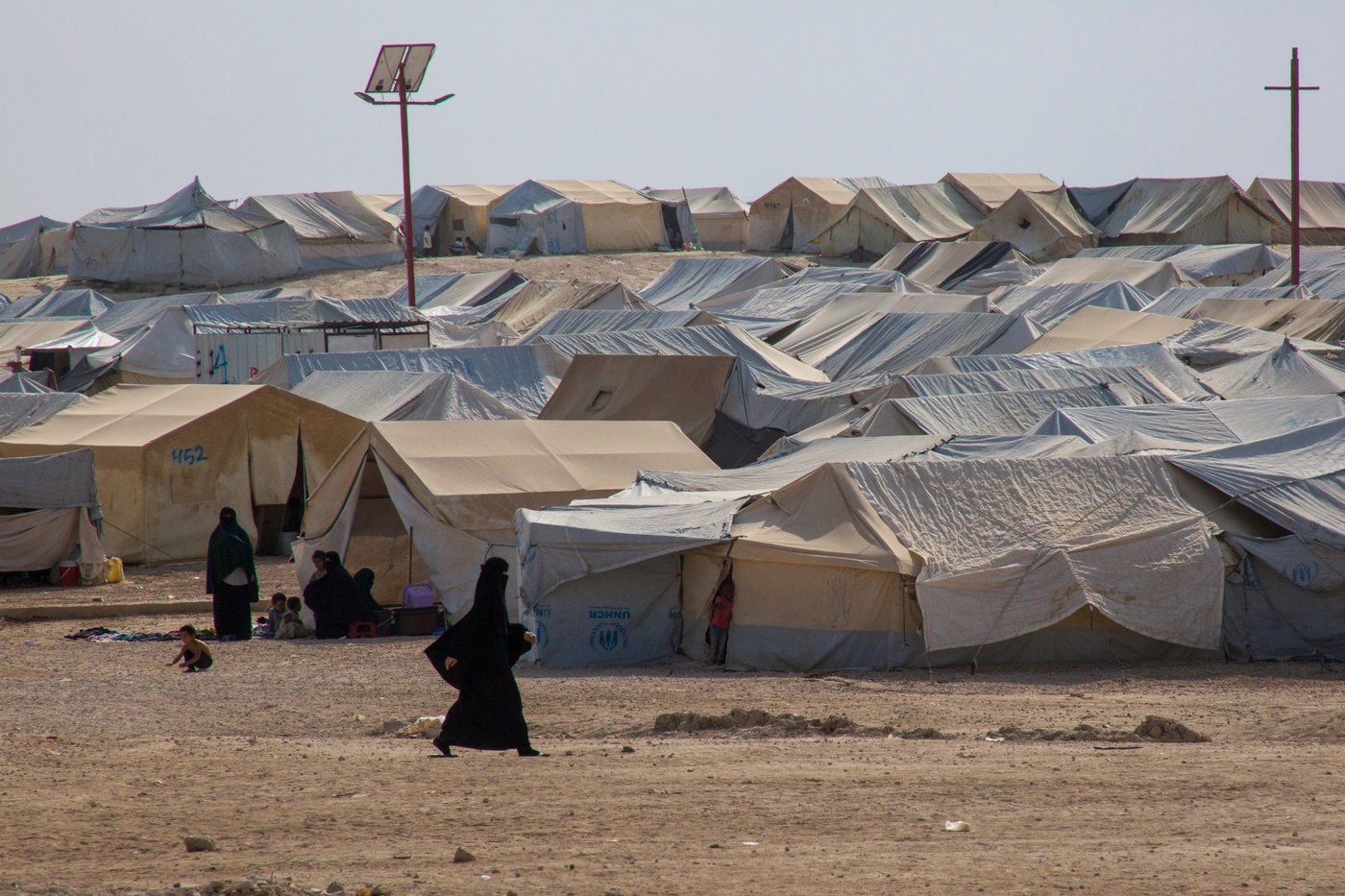For the past decade, researchers across the globe have been fascinated with the rise and fall of the ISIS terrorist group.
The group's self-declared Caliphate emerged from the ashes of the Syrian civil war and Iraqi Islamist insurgency. Then within five years, all of its territory — which at one point spread across Syria, Iraq and threatened the Turkish border — was gone.
ISIS attracted more than 40,000 foreign members to join its Caliphate in Syria and Iraq, of which approximately 10 percent were women. This was the first time that thousands of female members had joined a terrorist group overseas.
In the last decade, feminist researchers have been analyzing the nuances of women's involvement and experiences with the group — the why and how. Yet, there has been little focus on the foreign women (and children) who still remain in Syria and Iraq and the urgency of their repatriation, rehabilitation and reintegration.
The unanswered questions remain over what should happen to the foreign women who are not repatriated from the camps, and for those who are repatriated what rehabilitation and reintegration programs are in place that account for the experiences that these women had.
In Syria's north east is the Autonomous Administration of North and East Syria. The area is Kurdish majority and celebrates its ethnic and religious diversity, having recently ratified its constitution.
It is here that the the al-Hol and al-Roj camps are. Where tens of thousands of internally displaced individuals from the Syrian conflict live.
In al-Hol, half of an estimated 53,000 of those living in the camp are below the age of 11. Among them are thousands of foreign ISIS-associated women and children from more than 50 countries, including Russia, the UK, and China, detained in an annex separated from the rest of the camp population.
The situation in the camps is dire and the treatment has been compared to torture under international law. Numerous reports and accounts show that this indefinite imprisonment has lethal, long-term consequences.
Importantly, not just ISIS-associated women and children are detained in the camps but also ISIS's victims/survivors, such as Yazidi women and girls.
ISIS launched genocidal campaigns against the Yazidi community and atrocities against other minority groups, including ethnic, religious, gender and sexual minorities, underlining that the situation in the camp is unacceptable and urges international attention and assistance.
Crucially, the majority of inhabitants in the camp are Iraqi and Syrian families, which underlines the urgency to repatriate, prosecute where appropriate, rehabilitate and reintegrate foreigners to lift the pressure of the Autonomous Administration of North and East Syria.
Yet, while some governments have increased their efforts (willingly and unwillingly) to repatriate their citizens (including Iraq), little research has been done into the ongoing rehabilitation and reintegration programs that are operating, specifically for women returnees.
The question remains whether governments are prepared to work with the gender-specific needs of the heterogeneous returning women.
No program for women returnees
I have performed research across 12 countries in the field of rehabilitation and reintegration of foreign ISIS-associated women, interviewing returnees and the practitioners, policymakers, and researchers who work with them.
The findings show that rehabilitation and reintegration programs for these returnees are primarily gender-specific, focusing only on men, and neglecting women's experiences and needs. This absence of programs tailored to women returnees is influenced by stereotypes around women's lack of agency and peacefulness.
The research revealed that rehabilitation and reintegration practices for women returnees are often influenced by gendered, racial and religious assumptions.
Research participants shared that women returnees experience "double stigma", meaning they are stigmatized not just for joining an extremist group but also because they have transgressed prevalent gender norms by doing so.
Importantly, women with an ethnic and/or religious minority or migrant status are specifically affected by stigma, which is shaped by broader public thinking about ISIS returnees.
The public understanding of ISIS returnees has been considerably influenced by Islamophobia, particularly in non-Muslim majority countries.
One German practitioner described the impact of the Islamophobic narrative on her rehabilitation and reintegration program as a "constant racist devaluation". She also underlined that returning to a society that discriminates against you for, for example, your hijab or niqab negatively influences the feeling of belongingness and reintegration process.
The research shows that the approach to rehabilitation and reintegration should respond to the diverse needs of returnees. Programs should consider individual differences and inequalities and account for the specific experiences of, for example, women in minority ethnic or religious groups.
Successfully repatriating, prosecuting where appropriate, rehabilitating and reintegrating all returnees not only relieves the humanitarian situation in Syria and Iraq, but strengthens international security by hindering returnees from motivating others to join extremist groups and/or re-joining themselves.
(The author is a clinical psychologist working as a Research Fellow at the Center of Excellence for the Elimination of Violence Against Women (CEVAW) at Monash University)

